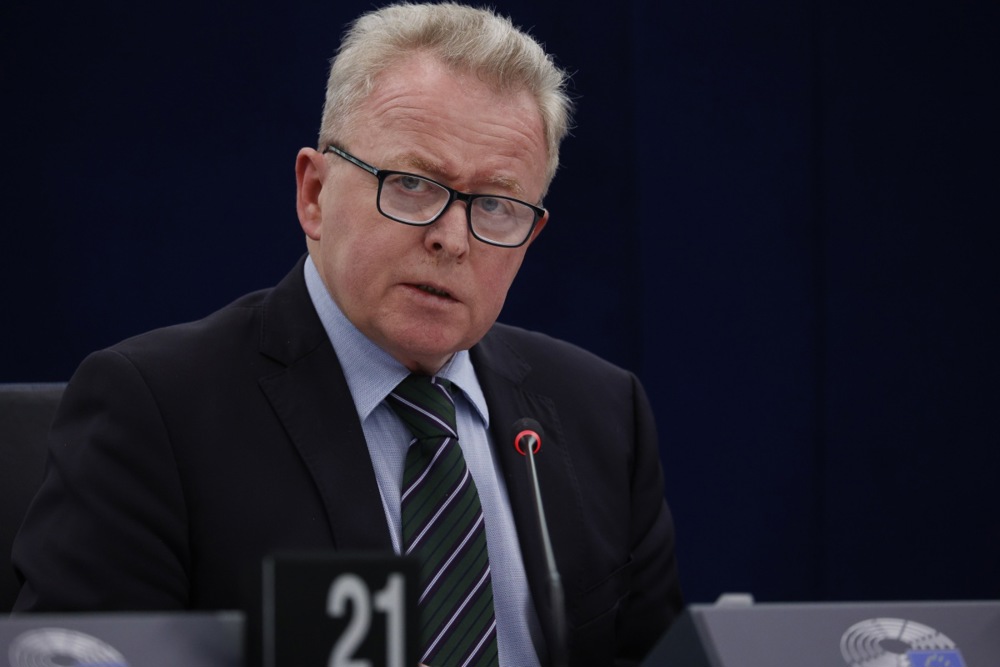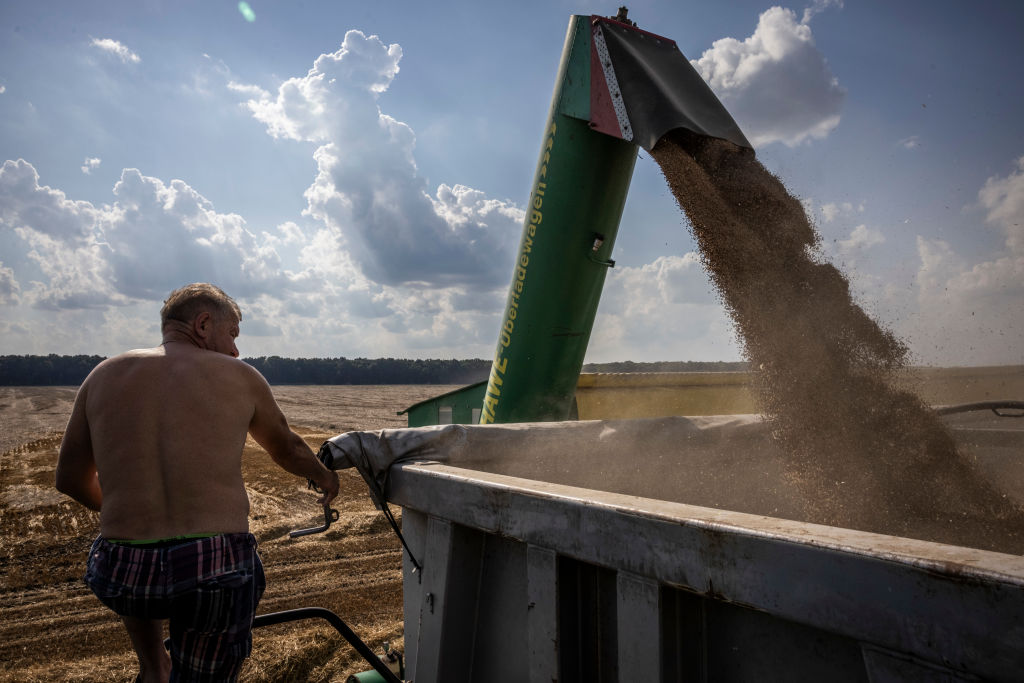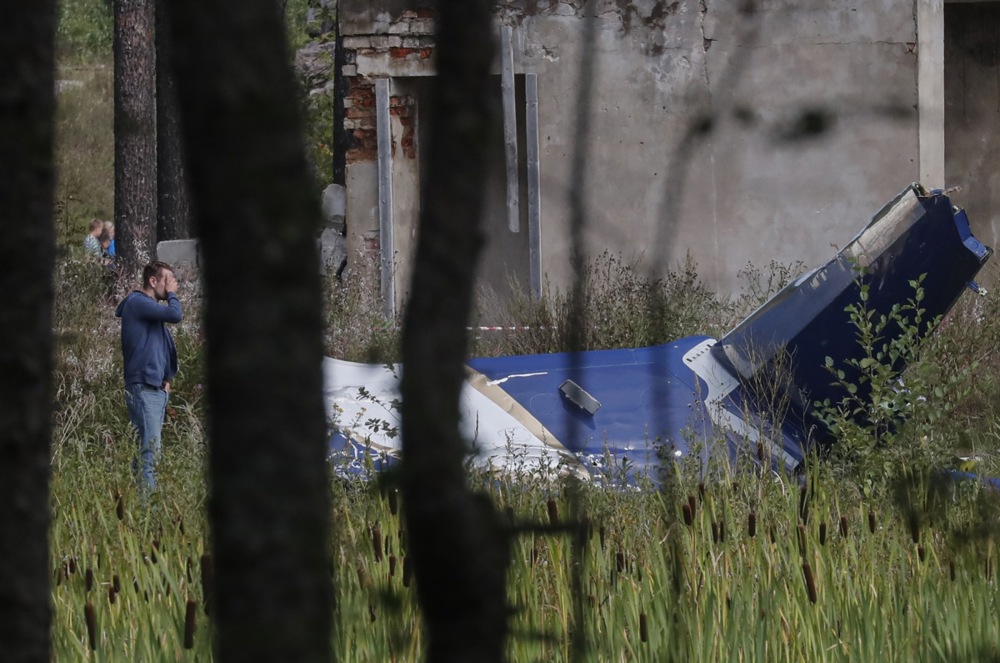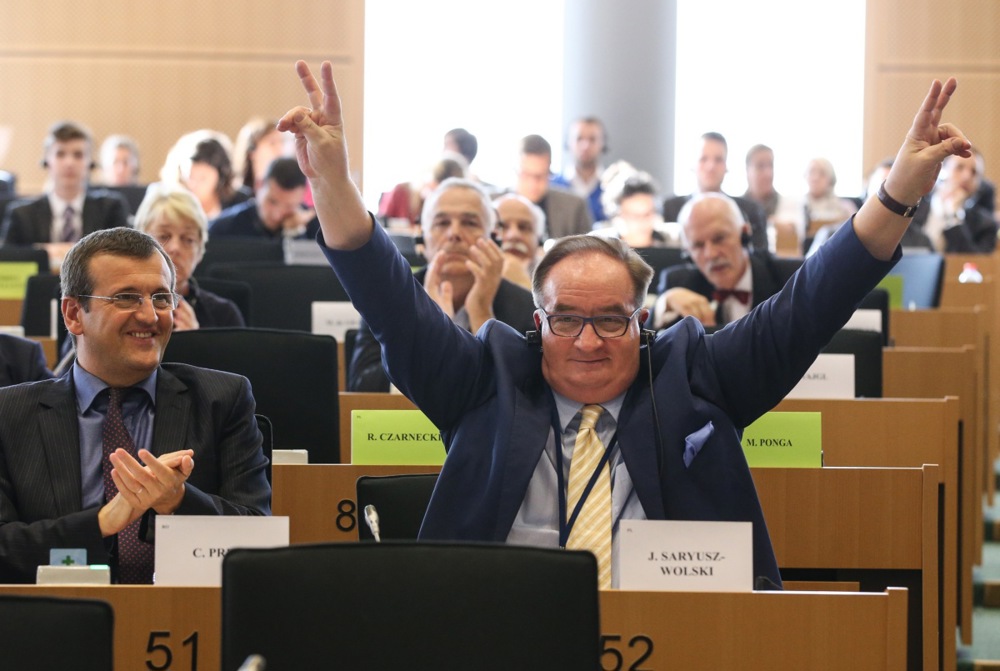Prominent Polish MEP Jacek Saryusz-Wolski says Germany is “encouraging” tensions between Poland and Ukraine as part of a secret strategy to dominate Europe.
In an exclusive interview with Brussels Signal, Saryusz-Wolski, a former Parliament vice president from Poland’s ruling Law and Justice party (PiS), says Germany’s hidden long-term aim is to take control of the continent via a strategic alliance with Russia.
Germany wants to see a European Union that includes Russia, according to Saryusz-Wolski. In this enlarged European vision, smaller Member States would be silenced by the Berlin ‘hegemon.’
Germany’s “long game [involves] this turning of the EU into a super state” he told this website. Berlin want to “have Europe from Lisbon to Vladivostok, where Germany hegemonically dominates Europe with tacit or silenced smaller Member States” after which Germany would “return to collaborating with Russia.”
His assertions carry profound implications if correct. He warned of a future where the United States was side-lined, Russia gained influence and central and eastern Europe was strategically squeezed between these two superpowers, a scenario he said would upend the post-Second World War order.
Such a situation “would be the opposite of what was the founding act of [the] Euro-Atlantic community, which was Germans down, Americans in, Russians out”, he said.
Instead “it would be Americans out, Russians in and Germans up”.
As a result, Germany “plays all the time, a hidden game, into the hands of Russia”, he claimed, adding that Berlin wants to see Ukraine cede territory to Russia in exchange for peace.
Poland, and other eastern EU nations, are currently locking horns with the European Commission and Ukraine over Ukrainian grain imports.
This began with Russia’s blockade of Black Sea transport routes, crippling Ukrainian grain exports. In response, the European Union opened its borders for transit and allowed imports from Ukraine under temporary, unilateral and revocable regulations.
However, the sheer volume of the grain coming in threatened local farmers, prompting Poland, Slovakia and Hungary to keep their markets closed to it, despite the EU lifting its embargo on September 15. As result these countries have drawn the ire of both Brussels and Kyiv.
“I’m suggesting that somebody has encouraged them to confront Poland, Slovakia and Hungary,” Saryusz-Wolski told Brussels Signal when asked if Ukraine’s moves were orchestrated by a third party.
“We suspect that it is Germany … and we regret that the American administration did not stop it,” he added.
In the short term, the three states’ grain embargo will likely remain in place, while Ukraine seeks alternative markets to fulfil its grain export needs.
Saryusz-Wolski emphasised the need to uphold the EU’s common agricultural policy, which is designed to protect Member States from foreign competition.
The upcoming Polish elections on October 15 add another layer of complexity to the whole issue. Saryusz-Wolski contended that, if the opposition secured victory and supported a European centralised federal project, it could further Germany’s ambitions and deepen its collaboration with Russia.
The full interview with Saryusz-Wolski is available on the Brussels Signal website and YouTube channel.





